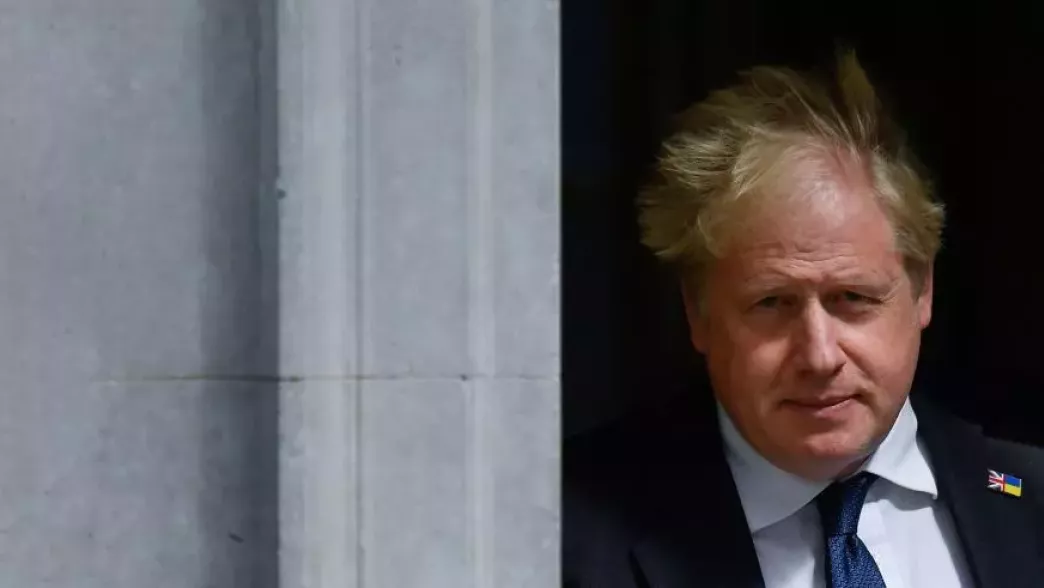Five reasons we should be troubled by Boris Johnson’s resignations honours
Boris Johnson’s resignation honours list should bring about the end of this damaging convention

Controversy has been growing over membership of the House of Lords being handed to friends by former prime ministers – and Boris Johnson’s resignation honours list should bring about the end of this damaging convention, writes Hannah White.
Boris Johnson appears to have gazumped the controversy over his resignation honours by resigning himself over the Privileges Committee’s reported recommendation that he should be suspended for misleading parliament.
The list saga has gone on so long that even with full visibility of the final list it is easy to lose sight of why we should care about the people the former prime minister has nominated for peerages during and after his time in office. Appropriately for a politician whose Westminster career has been as dramatic – and controversial – as any in recent memory, Johnson’s list was approved just hours before he quit as an MP.
The verdict of the Privileges Committee, and Johnson’s rapid exit from parliament, will dominate the headlines in coming days. But beyond immediate amazement at some of the individuals handed life membership of the second chamber, it is worth a reminder of the important issues that Johnson’s honours raise.
1. Johnson has attempted to stretch conventions around Lords appointments
Throughout his premiership, Johnson attempted to push the boundaries of the constitution, and his approach to his resignation honours was no different – it is apparent that he attempted to stretch the conventions around appointments to the Lords. The House of Lords Appointments Committee (HOLAC) has confirmed that it rejected on the grounds of propriety no fewer than eight individuals who Johnson had proposed to ennoble. With seven new peers making it onto the list, that represents a rejection rate of over 50%. The previous average has been around 10%. This, combined with Johnson’s indictment by the Privileges Committee for misleading parliament, will further cement his reputation for constitutional recklessness.
2. There are concerns about the suitability of some of Johnson's peers
While HOLAC has clearly played an important role in moderating Johnson’s proposals for peerages, the final list has rightly prompted concern about those who were cleared and now have seats for life in the upper house. This presents a serious risk to the reputation and credibility of the House of Lords, which – without democratic legitimacy – is based on the quality of its membership. Resignation honours allow former prime ministers to reward friends and political allies rather than appointing individuals with a clear contribution to make to the legislature, heightening perceptions of cronyism. These perceptions are then reinforced if the individuals in question fail to participate in the work of the Lords – treating it as a rarified members’ club rather than a place of work – a concern expressed by the Lord Speaker Lord McFall in 2022.
3. The House of Lords is already too large
These appointments inflate even further the already bloated House of Lords, further damaging its credibility while also raising concerns about its effectiveness. The enormous size of the Lords inhibits the effectiveness of its scrutiny, for example by accelerating turnover on committees. Johnson’s seven resignation peerages brings to 94 the total number he added to the Lords during his relatively short premiership – with more than 760 members now making it one of the biggest legislatures in the world.
4. Johnson has dragged the monarch into politics again
As he had done as prime minister with his controversial – and ultimately unlawful – attempt to prorogue parliament in 2019, Johnson’s resignation honours have dragged the monarch into politics. The statement announcing his resignation honours begins with the line: “The King has been graciously pleased to signify His intention of conferring Peerages of the United Kingdom for Life”, before listing Johnson’s seven chosen peers. It was a cynical act of Johnson to wait until his honours were announced before resigning his seat, a move which once again demonstrated a disregard for the principle that the monarch should not be embarrassed or drawn into politics. The peerages won’t damage King Charles’ standing, but this key principle of our constitution is no longer as robust as it was before Johnson’s premiership.
5. Rishi Sunak has missed an opportunity
Finally, the nodding through of Johnson’s nominations is a missed opportunity for the current occupant of No.10 to underline and enforce this tradition. Rishi Sunak has acquiesced in Johnson’s latest stretching of the boundaries of constitutional convention, choosing to accept his resignation honours even when Johnson’s egregious proposals presented him with a clear opportunity to push back, or even establish his professed ethical credentials by abandoning the practice altogether. The make-up of the House of Lords is unlikely to be at the forefront of voters’ concerns at the next election, but the prime minister has missed an opportunity to show that he cares about the calibre of people who determine the laws and policies that shape voters’ lives.
A senior Conservative has said that they hoped Johnson’s honours list might bring down “the final curtain on the Boris embarrassment”, 4 Sunak approves Boris Johnson honours list including aides linked to Partygate | Boris Johnson | The Guardian but the headlines will now largely focus on Johnson’s dramatic exit from the House of Commons stage. Nevertheless, Johnson’s final recasting of the House of Lords serves as the starkest of reminders why former prime ministers should no longer be allowed to appoint their friends, allies and benefactors to lifelong positions in the UK’s second legislative chamber.
- Keywords
- Ethical standards
- Political party
- Conservative
- Position
- Prime minister
- Administration
- Sunak government Johnson government
- Legislature
- House of Lords
- Public figures
- Boris Johnson Rishi Sunak
- Publisher
- Institute for Government